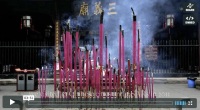Mysterious disappearance or a symptom of the trappings of instant gratification – the speculations are rife in both traditional and new media? So, where did China’s future leader go the past week?
Yesterday, an article Xi cited in public statement, but rumours persist by Peh Shing Huey in the Straits Times provided a pertinent quote. Indeed, it was only Thursday that Xi’s re-appearance was a citation in state media, a public appearance for the first time in 12 days.
Until he appears in person, the rumours will persist. This message is unlikely to calm nerves. Analyst Zhang Ming from Renmin University, on Chinese Vice-President Xi Jinping
And finally, after ‘disappearing’ from public view for a week, China’s Vice-President Xi Jinping in public appearance (BBC, September 15, 2012). During this time, Xi cancelled meetings with US Secretary of State Hillary Clinton and Singapore’s Prime Minister Lee Hsien Loong.
See also from the standard wires – China’s presumed next leader, Xi Jinping, reappears in public (Associated Press/Fox News)
A source to the Straits Times had revealed that all this time, Xi had simply injured his back while swimming.
During this period of absence however, searches for Mr Xi’s name on China’s micro-blogging sites were blocked, adding fuel to the cauldron of speculation. A lesson for Chinese identity management for both domestic and foreign audience, surely – that disappearances by leaders-elect make digital pressure cookers for public opinion in transnational networked society.
– – –
China’s Public Confidence Crisis
Brian Killough, U.S. Air Force military fellow at the Council on Foreign Relations.
Source – The Atlantic, published September 14, 2012
The mysterious disappearance of presumed next leader Xi Jinping has many Chinese worried about how much they can trust their government.

Chinese Vice President Xi Jinping (right) and the Republic of Korea’s Ambassador to China celebrate the 20th anniversary of the establishment of diplomatic ties, on August 30, 2012. (Reuters)
The approaching change in leadership from President Hu Jintao to Vice President Xi Jinping seemed to be going smoothly until the vice president started missing high-level meetings. Since then, rumors have been flying over the causes for the missed meetings. These rumors include a back injury, a car wreck, a heart attack, and a minor stroke. On the other hand, another source claims that Xi Jinping is in good health but is “orchestrating unprecedented political reforms.” Regardless of the real reason, Internet access and a burgeoning middle class have ensured that there is a substantial demand for information, government accountability, and transparency from the Chinese population.
In Chinese culture, citizens are expected to be loyal to their government, but there is also reciprocity expected from the nation’s leaders. The “Mandate of Heaven” is an ancient and well understood cultural philosophy in China that posits, among other things, the emperor’s (leader’s) virtue determines his right to rule, and no one dynasty (party) has a permanent right to rule. In the months leading up to the 18th National Congress of the Communist Party of China (CCP), we have seen the scandal surrounding Bo Xilai and his wife’s conviction in the murder of businessman Neil Heywood, earthquakes, and mine disasters. More recently, the dispute with Japan over the Senkaku/Diaoyu islands has angered Chinese citizens and could lead them to perceive the government as weak. In a time when party officials would desire to make this generational leadership transition seamless and sure, the feeling from Beijing is anything but harmonious.
Why would the CCP leadership choose to handle the current questions about Xi Jinping in this manner? Is there a real concern over the public’s perception of his ability to rule if has a serious health issue? Chinese leadership has been sensitive to this perception in the past. In 1966, Chairman Mao swam across the Yangtze River during a time of leadership uncertainty to prove his fitness to lead. At the very least, there seems to be a national “loss of face” for missing meetings with foreign dignitaries. At twelve days and counting since Xi Jinping’s last appearance, the world outside the Middle Kingdom may get some insight into the health of the communist regime by observing how the Chinese people’s confidence in party leadership is affected by the CCP’s handling of recent events and Xi Jinping’s disappearance. While there does not seem to be any danger of a popular uprising based on these current events, public confidence in national leadership has been negatively affected. For example, although he believed the absence to be “quite normal,” Professor Hu Xingdou from the Beijing Institute of Technology criticized the lack of transparencyin a recent interview. On the internet, government censors have removed critical posts and questions within minutes and blocked searches for most common references to the stories and rumors surrounding the disappearance. Today, state media said Xi Jinping expressed condolences to the family of a senior CCP official who died last week. However, he has not made an appearance and the party has given no explanation for his absence. The demands for governmental transparency are growing and those demands, alone, are a small step in the process toward a more open and representative form of government for the Chinese people.
This article also appears at CFR.org, an Atlantic partner site.
Filed under: Beijing Consensus, Censorship, Charm Offensive, Chinese Model, Communications, Government & Policy, Influence, Mapping Feelings, Media, New Leadership, Politics, Public Diplomacy, Strategy, Tao Guang Yang Hui (韬光养晦), The Atlantic, The Chinese Identity, China's Rise, Media, Propaganda, Public Diplomacy, Strategy














The Sharing Circle